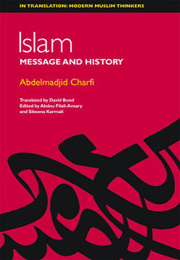2 - Institutionalised Islam
from Part Two - The Message in History
Published online by Cambridge University Press: 12 September 2012
Summary
The core beliefs and initial message of all religions tend to undergo a process of organisation and institutionalisation, and Islam was no exception in this respect. The basic principles of the message of Islam could not take form in the setting of the history of the first/seventh century without undergoing a similar process. Institutionalisation involves passing from theory to application, from what is potentially present to that which exists in reality. This inevitably means that first principles will lose a greater or lesser degree of their initial élan, and acquire characteristics that reflect a specific historical situation with all its ramifications and contradictions. One should not be surprised to find that one of many potential or existing interpretations attracts the adhesion of individuals or groups, prevails over the others and marginalises them, gradually acquiring the status of authentic and self-evident truth. This is because the interpretation in question conforms to ways of thinking at that time and to the prevailing balance of socio-economic and political power.
There were three main orientations in this process: first, differentiation from other groups, stressing what separated Muslims from other communities, be they polytheists or ahl al-kitāb. This is unsurprising, given that the Muslims were initially a minority among the inhabitants of the conquered territories, afraid of being absorbed into the religious and racial mix surrounding them. They, therefore, needed to create ways in which they would easily recognise one another in matters of dress, clothes and general conduct.
- Type
- Chapter
- Information
- IslamBetween Message and History, pp. 101 - 110Publisher: Edinburgh University PressPrint publication year: 2009



